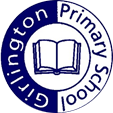Writing and GPS at Girlington

‘It is crucial for children to develop a life-long love of reading. Reading consists of two dimensions: language comprehension and word reading. Language comprehension (necessary for both reading and writing) starts from birth. It only develops when adults talk with children about the world around them and the books (stories and non-fiction) they read with them, and enjoy rhymes, poems and songs together. Skilled word reading, taught later, involves both the speedy working out of the pronunciation of unfamiliar printed words (decoding) and the speedy recognition of familiar printed words. Writing involves transcription (spelling and handwriting) and composition (articulating ideas and structuring them in speech, before writing). Statutory framework for the early years foundation stage 2021
‘Pupils should develop the stamina and skills to write at length, with accurate spelling and punctuation. They should be taught the correct use of grammar. They should build on what they have been taught to expand the range of their writing and the variety of the grammar they use. The writing they do should include narratives, explanations, descriptions, comparisons, summaries and evaluations: such writing supports them in rehearsing, understanding and consolidating what they have heard or read.’ National Curriculum 2014
Aims
At Girlington Primary School our aim is to develop accomplished writers who will leave our school with a broad range of writing skills, a stamina and a love of writing, in order to access and succeed in the secondary curriculum.
Guidelines
Teachers promote writing and look for ways to inspire and motivate pupils so that they see themselves as ‘writers’. Teachers establish the purpose and audience for writing. Writing objectives are focussed on explicit writing skills taken from the Statutory Framework for the EYFS and National Curriculum, with a focus on year group specific skills set out in Appendix 2 of the National Curriculum. As school we have separated writing objectives into specific year groups for Lower and Upper KS2 in order to ensure a clear progression. Please see End of Year Writing Expectations at Girlington for more detail.
The writing process breaks down into a number of steps that will need to be taught and practised regularly:
- Planning
- Drafting and Writing
- Evaluating and Editing
- Proof-Reading
- Reading Aloud and Sharing
Grammar, Punctuation and Spelling
At Girlington Primary School, our aim is to explicitly teach grammar, punctuation and spelling to high standard so that a deep understanding is developed. Once the skills are embedded we then aim for these skills to be applied to children’s spoken language, reading and writing.
Guidelines
Grammar, punctuation and spelling is taught on a daily basis from Years 1 – 6. It is planned using Appendix 1 and 2 of the National Curriculum.
Short, focussed daily lessons are used to enable the children to learn the required knowledge, skills and understanding. These lessons are followed by providing opportunities for the children to use and apply their skills within reading and writing lessons.
